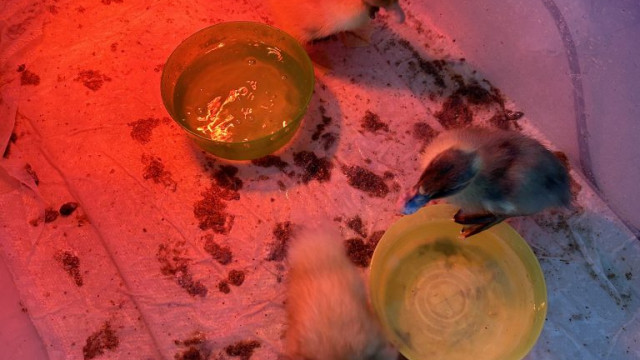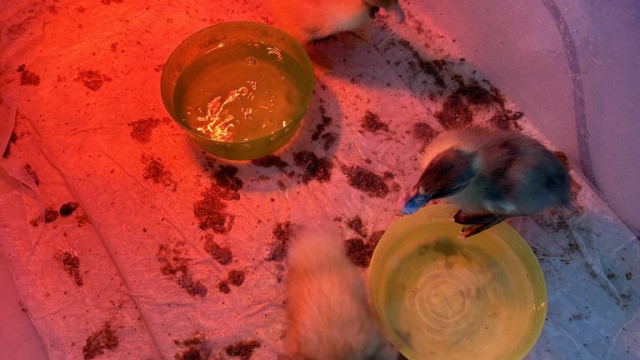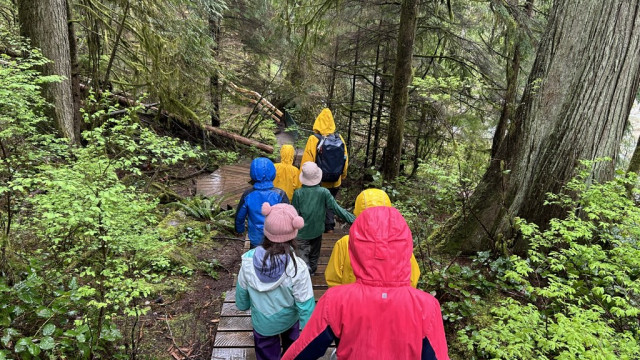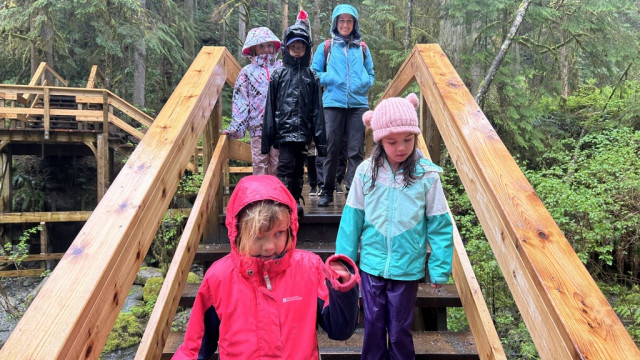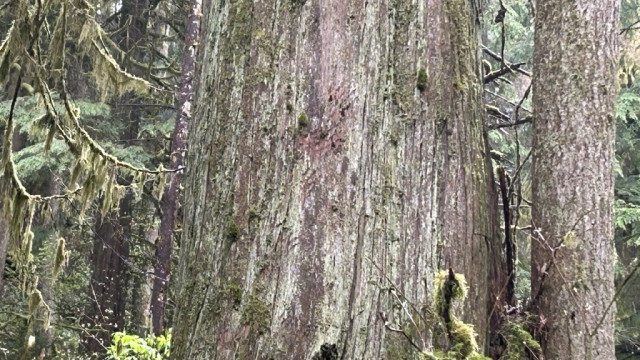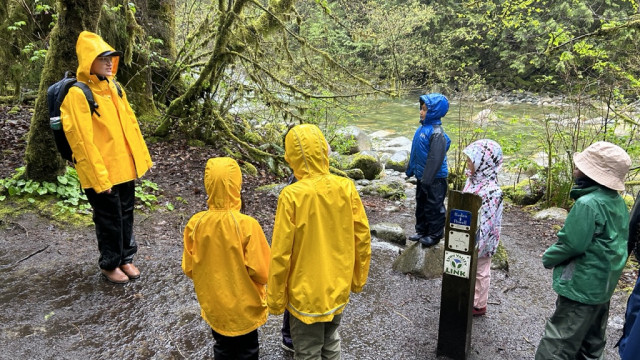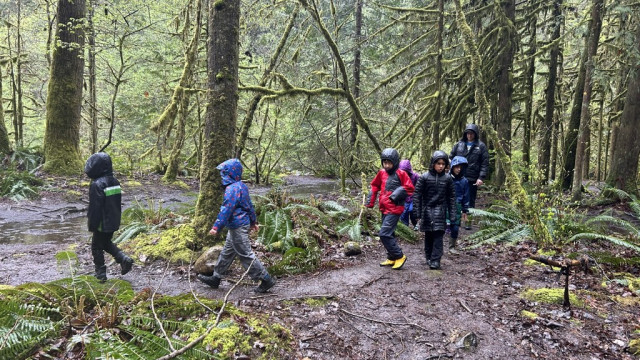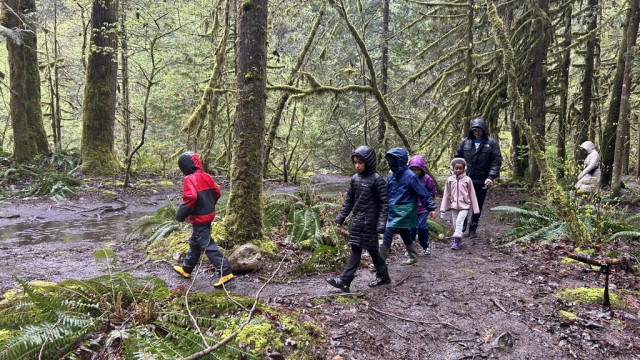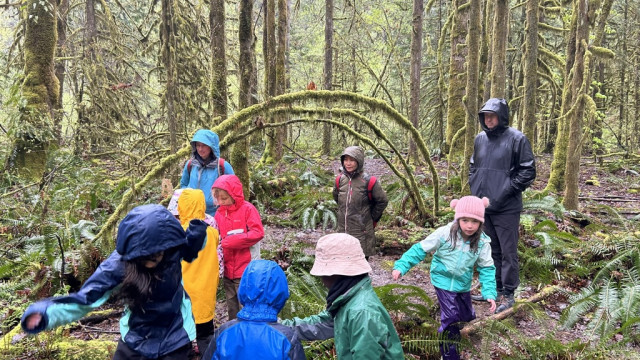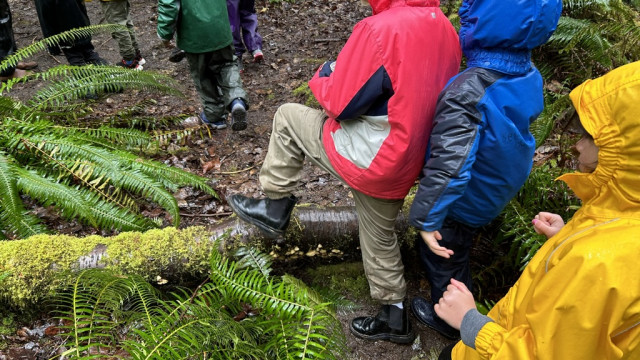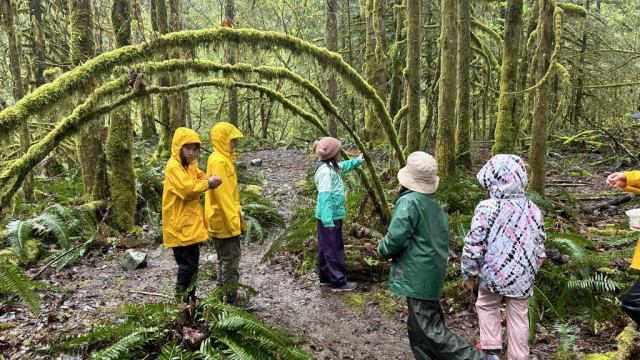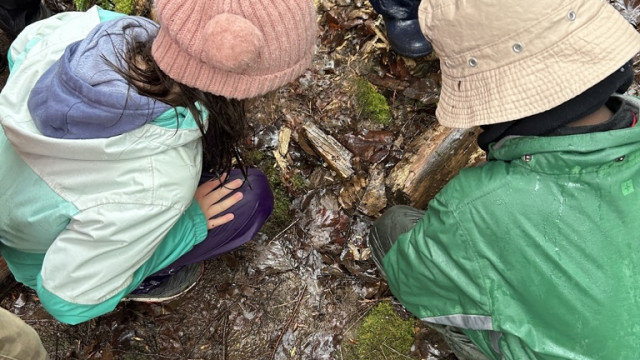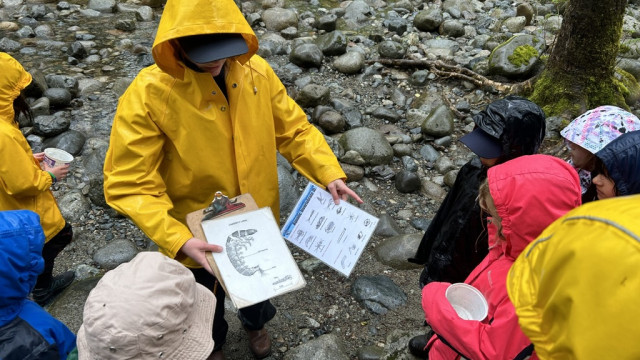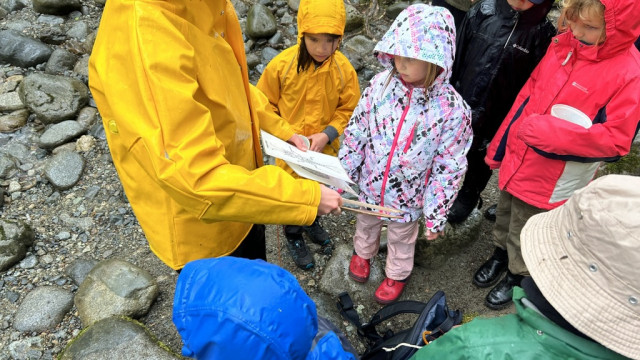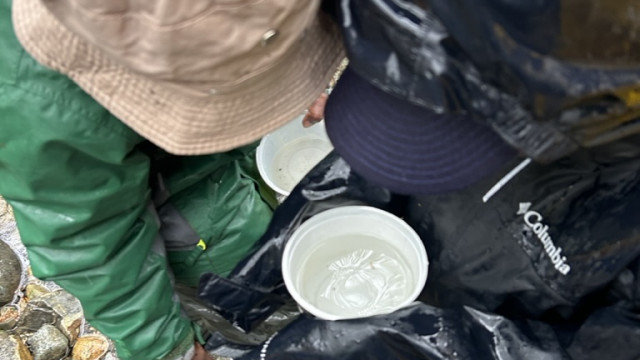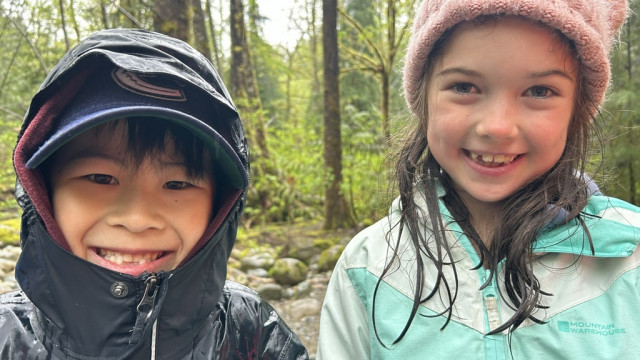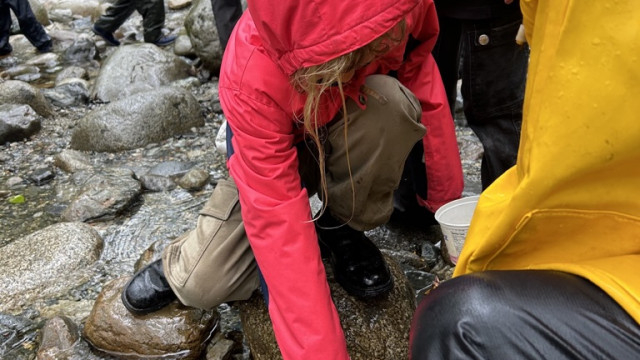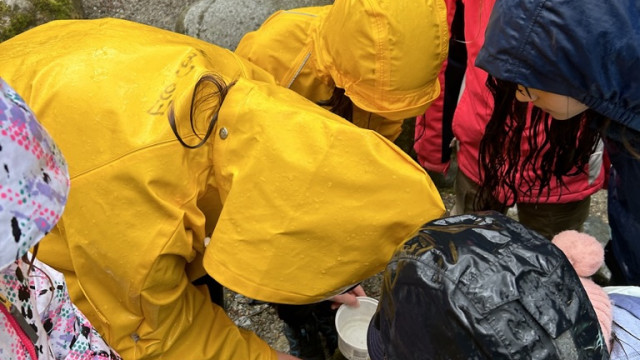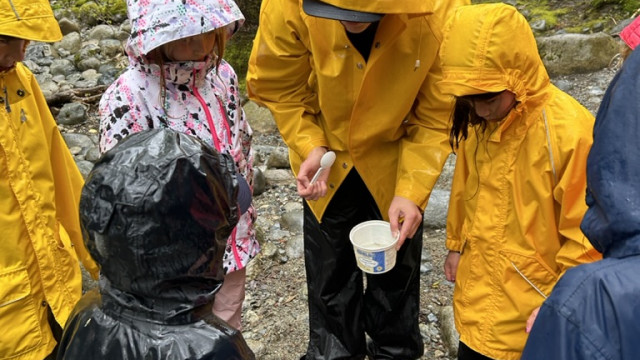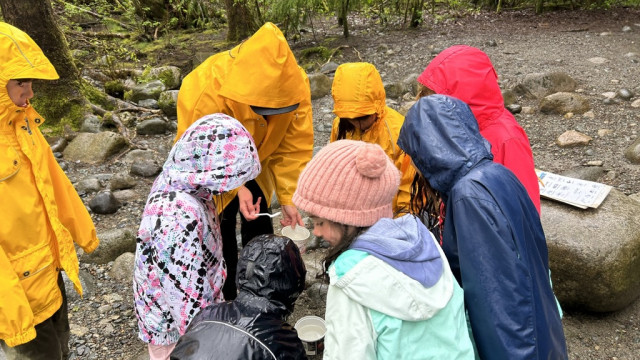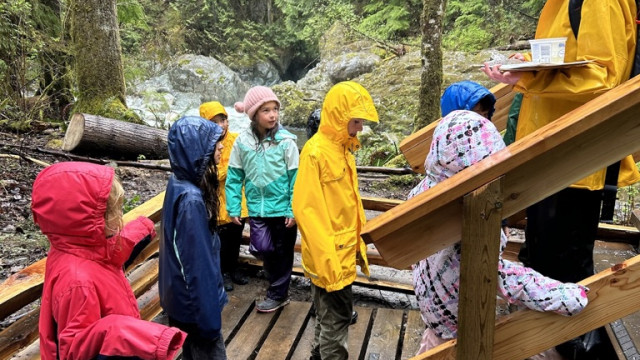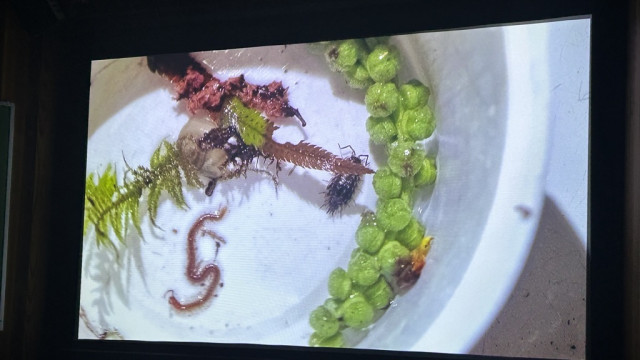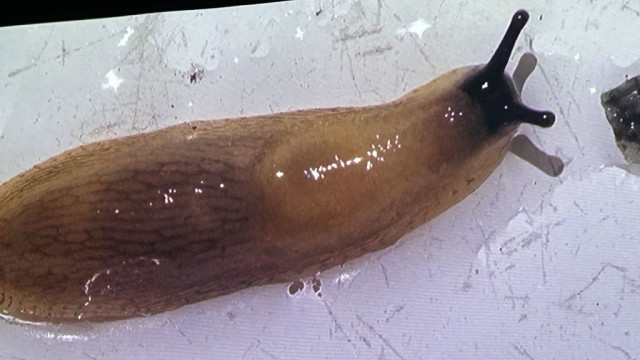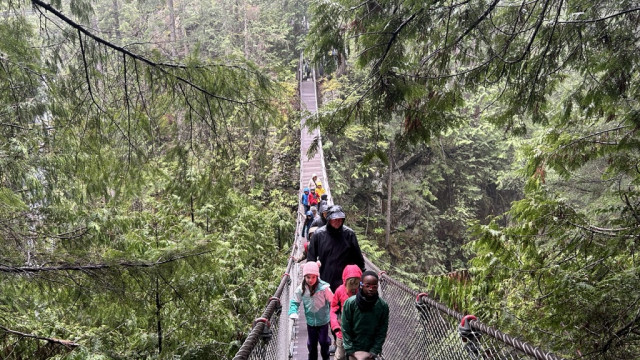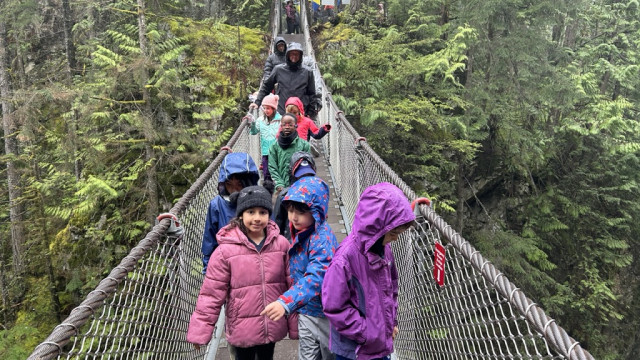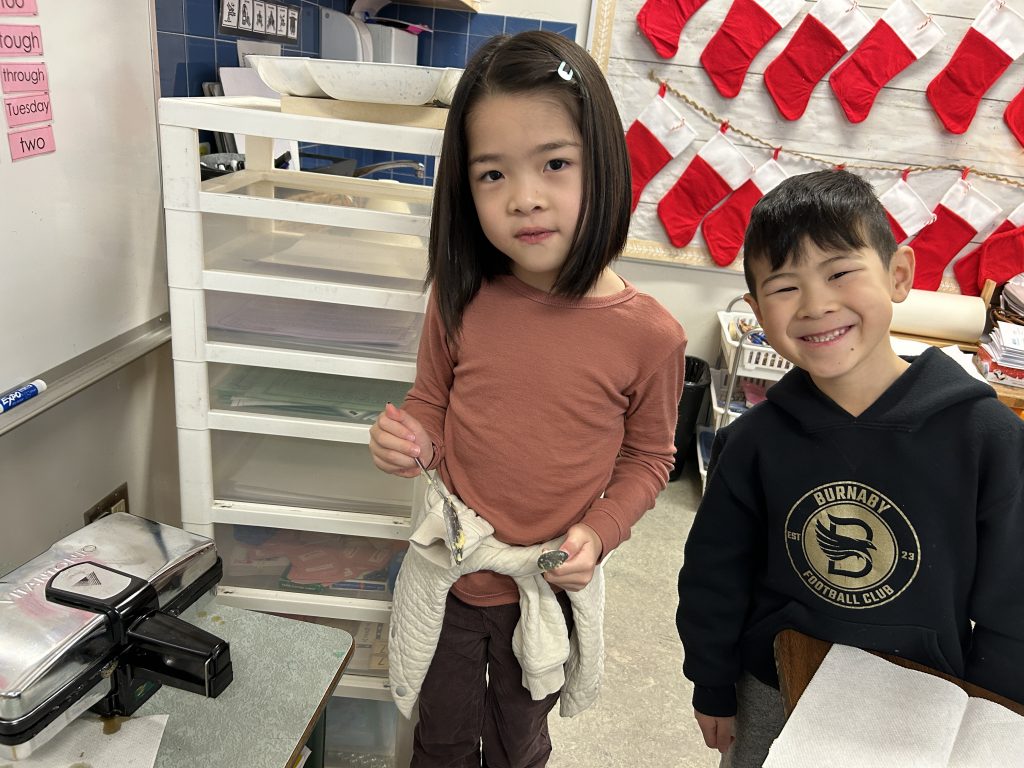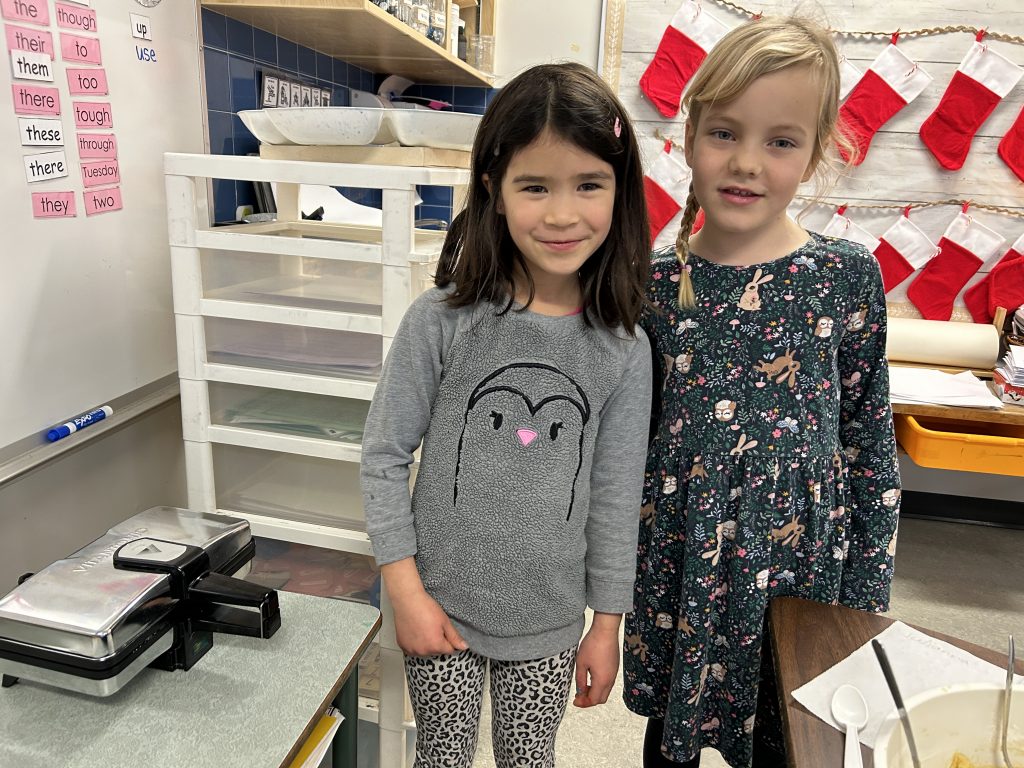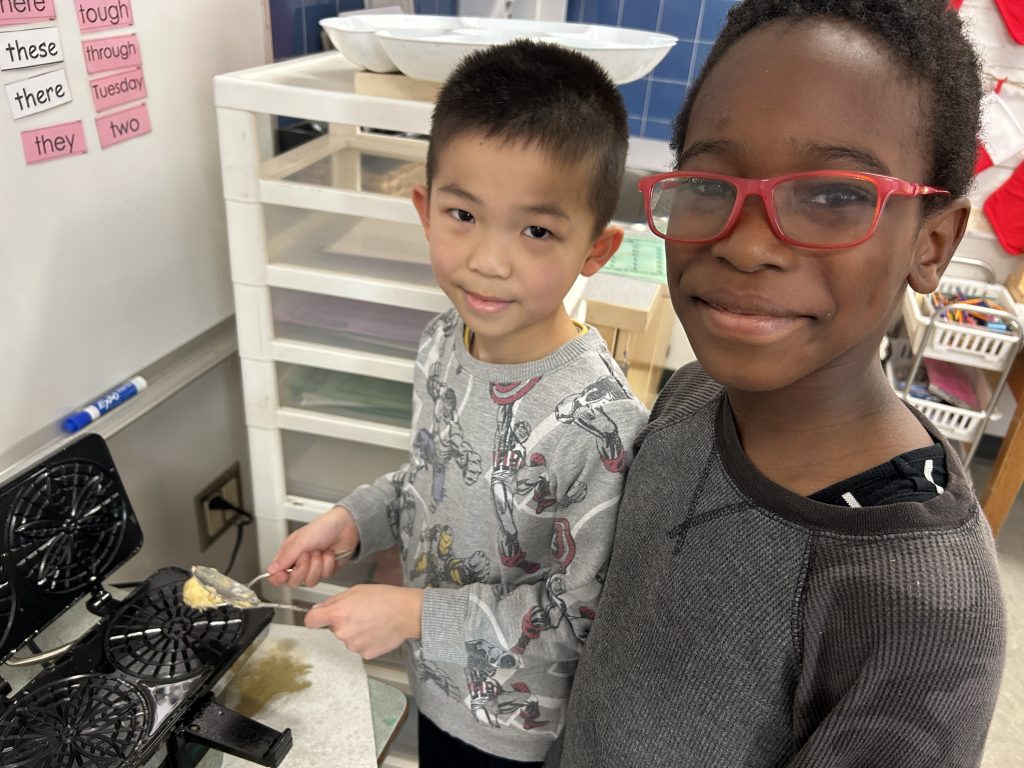Division 16 has been spending time with our ducks and we have been learning a lot about them. Each morning, we get into a circle, observe them, talk about them, pet them and enjoy them! We are watching them grow daily (boy are they growing!) and noticing the changes that occur every day. Ask your child what they have noticed. Ask your child if they got to pet all three ducks. Ask your child how the ducks feel about water. Ask your child what the ducks spent most of their time doing on Friday when we combined our Community Circle with our duck observation time. What an amazing learning experience this has been for all of us!
Category: Science
Div. 16 is happy to announce that Squeaks and Canuck the Duck both arrived on Friday! Squeaks arrived before school and Canuck the Duck arrived in the afternoon. We had a vote in the class to pick the great names. Both ducks first went home with Ms Ballarin and her family until I could pick them up on Friday night. Squeaks was born with wry neck, so he needed a sponge collar to help hold up his neck. He also had to be separated from the other duck, so Canuck stayed with Ms Ballarin and the chicks. After a day and a half with the collar, Squeaks is now on the road to recovery. He is eating, drinking, (pooping tons!) and getting to know our dog, Sunny. Lemon arrived on Sunday! He met Canuck the Duck and the kids when I brought the ducks in on Monday! What a lovely way to spend a weekend! The ducks love each other and spend lots of time sleeping in a clump. When they are awake, they make lots of noise in our classroom and constantly make us smile!
Yesterday was our field trip to Lynn Canyon Park and Ecology Centre, where we were learning about water everywhere. We discovered so many things about water, trees, insects, forests, habitats and the environment around us. We visited the Lynn Canyon Ecology Centre museum and saw some amazing exhibits and 3D maps. We took a walk over the Lynn Canyon Suspension Bridge and into the forest. Ask your child to tell you about the Douglas Fir tree bark and cones. Our leader then took us along the Baden Powell Trail into the forest. This is where we turned over rocks and logs to find a variety of creatures and forest floor debris. We then went to Lynn Creek to find water insects. Ask your child to tell you about the Mayfly and the Caddisfly. We were taken back to the Ecology Centre to look under a microscope at all of the creatures we had found. The park is 15 minutes from Gilmore. Your children have learned so much about the forest and its creatures. Take a trip there soon, or over the summer and they can be your leaders. Don’t forget to take a yoghurt container with you, so that they can show you how to find the water insects. Even in the rain, this field trip was such an amazing learning experience. We hope you will go discover it with your family soon! Thank you to all the parents who drove and volunteered; we couldn’t have done it without you!
Big Ideas:
- Living things have life cycles adapted to their environment
- Water is essential to all living things and it cycles through the environment
First Peoples Principles of Learning:
- Learning ultimately supports the well-being of the self, the family, the community, the land, the spirits and the ancestors
- Learning involves recognizing the consequences of one’s actions
- Learning recognizes the roles of Indigenous knowledge
Content:
- Demonstrate curiosity and a sense of wonder about the world
- Observe objects and events in familiar contexts
- Experience and interpret the local environment
- Compare observations with predictions through discussion
- Consider some environmental consequences of their actions
- Compare observations with those of others
Core Competencies:
- I am kind to others and our environment
- I get ideas when I play and explore
- I get ideas when I use my senses to explore
- I can share my ideas and questions
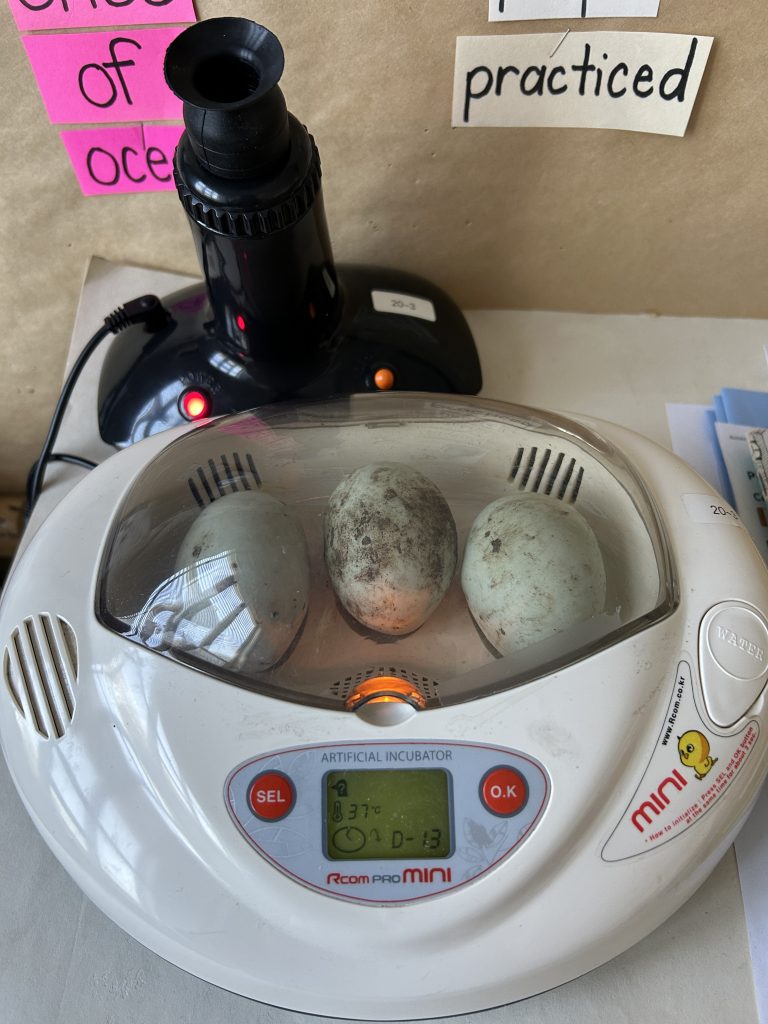
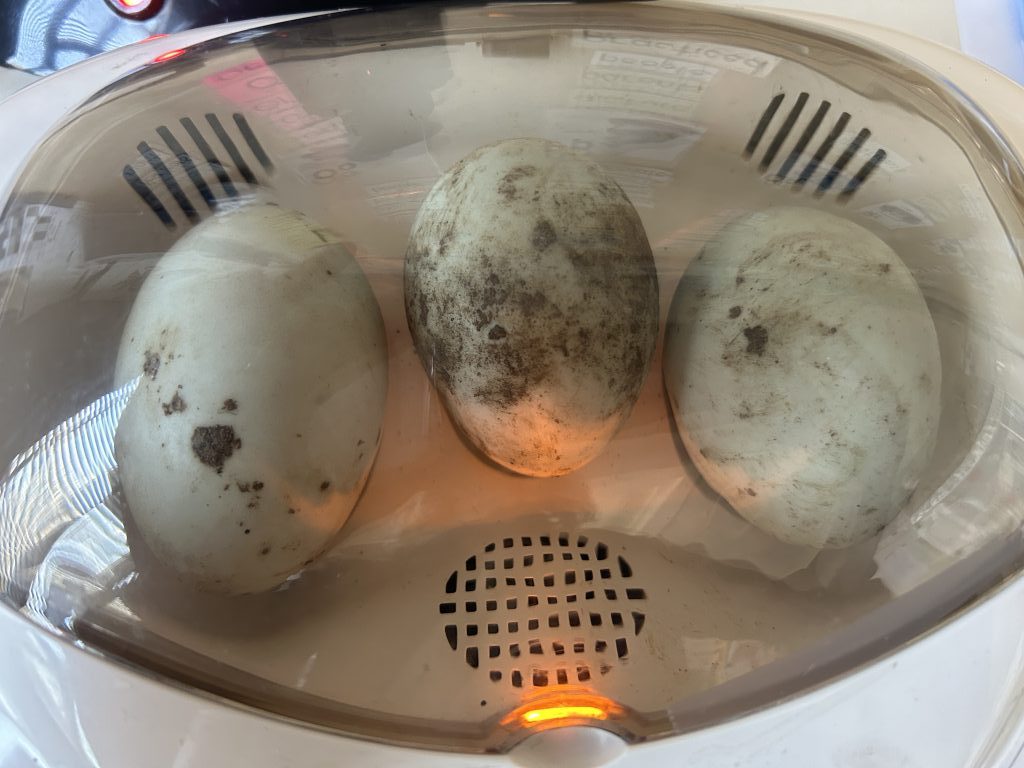 Dear Families of Div. 16:
Dear Families of Div. 16:
The farmer delivered our duck eggs to our classroom late Friday afternoon and we were all very excited! Ms Ballarin’s class received three chicken eggs. Ask your child where they are keeping warm and growing in our classroom. Most days we have the opportunity to look through a scope and see the embryos develop. Each day something has changed. Ask your child what they noticed today in comparison to Tuesday. We are also learning with our “Egg Cycle” booklet what is happening inside the egg each day in its development. In 13 days, we are expecting our ducklings to arrive. Ask your child to make a prediction about how what is growing inside the egg might have changed when we observe the eggs next.
Big Ideas:
- Living things have life cycles adapted to their environment
Curriculum Competencies:
- Observe objects and events in familiar contexts
- Ask questions about familiar objects and events
- Make simple predictions about familiar objects and events
- Make and record observations
- Transfer and apply learning to new situations
- Sort and classify data and information using drawings, pictographs and provided tables
Content:
- non-metamorphic life cycles of different organisms
- similarities and differences between offspring and parent
- compare observations with predictions through discussion
- compare observations with those of others
- communicate observations and ideas using oral or written language and drawing
Core Competency: Critical Thinking and Reflective Thinking
- I can ask questions and consider options. I can use my observations, experience, and imagination to draw conclusions and make judgments.
First Peoples Principles of Learning: Learning is holistic, reflexive, reflective, experiential, and relational.
As a Math/Science/holiday activity we made Italian Pizzelle cookies with Ms. Ballarin’s class. Ms Ballarin and I both have pizzelle makers at home, mine was given to me by my mom. While making the dough, we used Math concepts to measure using measuring cups and spoons. In Science, we also explored changes in matter through heating and cooling. It was very exciting for the students to make cookies in a new way. Each child ate one cookie at school and came home with two. We hope you were able to get a taste too!
Big Idea: Materials can be changed through physical and chemical processes
First Peoples Principles of Learning: Learning takes patience and time
Curriculum Competencies:
- Observe objects and events in familiar contexts
- Ask questions about familiar objects and events
- Make simple predictions about familiar objects and events
- Make observations
- Develop, demonstrate, and apply mathematical understanding through play, inquiry, and problem solving
Core Competency: Critical Thinking and Reflective Thinking
- I can ask questions and consider options. I can use my observations, experience, and imagination to draw conclusions and make judgments.
On Wednesday, we took our learning outside for a nature walk with Ms Ballarin’s class. We look forward to many opportunities this year to provide students with outside learning lessons. We asked your child to discuss with you what they discovered on our walk down to the park and to share why they picked their three different items. The students in their groups were encouraged to guess which area of the park or walk that their items came from. Stay tuned for more outdoor learning and for more information about our upcoming tree study.
Big Ideas:
- Living things have life cycles adapted to their environment
- Objects and shapes have attributes that can be described, measured, and compared
- Effective collaboration relies on clear, respectful communication
- Designs grow out of natural curiosity
Curricular Competencies:
- Explain how participation in outdoor activities supports connections with the community and environment
- Use Social Studies inquiry processes and skills to ask questions; gather, interpret and analyze ideas; and communicate findings and decisions
- Engage in problem-solving experiences that are connected to place, story, cultural practices, and perspectives relevant to local First Peoples communities, the local community, and other cultures
- Demonstrate curiosity and a sense of wonder about the world
- Experience and interpret the local environment
- Compare observations with those of others
- Generate and introduce new or refined ideas when problem solving
Learning Involved:
- Experience and interpret the local environment
- Exchange ideas and perspectives to build shared understanding
- Develop and use multiple strategies to engage in problem solving
- Recognize the relationships between people and the environment in different communities
- Compare observations with predictions through discussion
First Peoples Principles of Learning:
Learning ultimately supports the well-being of the self, the family, the community, the land, the spirits, and the ancestors
- Learning is holistic, reflexive, reflective, experiential, and relational
Core Competencies:
Critical Thinking
- I can ask questions and consider options. I can use my observations, experience, and imagination to draw conclusions and make judgments
Creative Thinking
- I get new ideas when I play and explore
Communication
- I can share my ideas and questions
- I can listen to others
Social Responsibility
- I am kind to others and our environment



